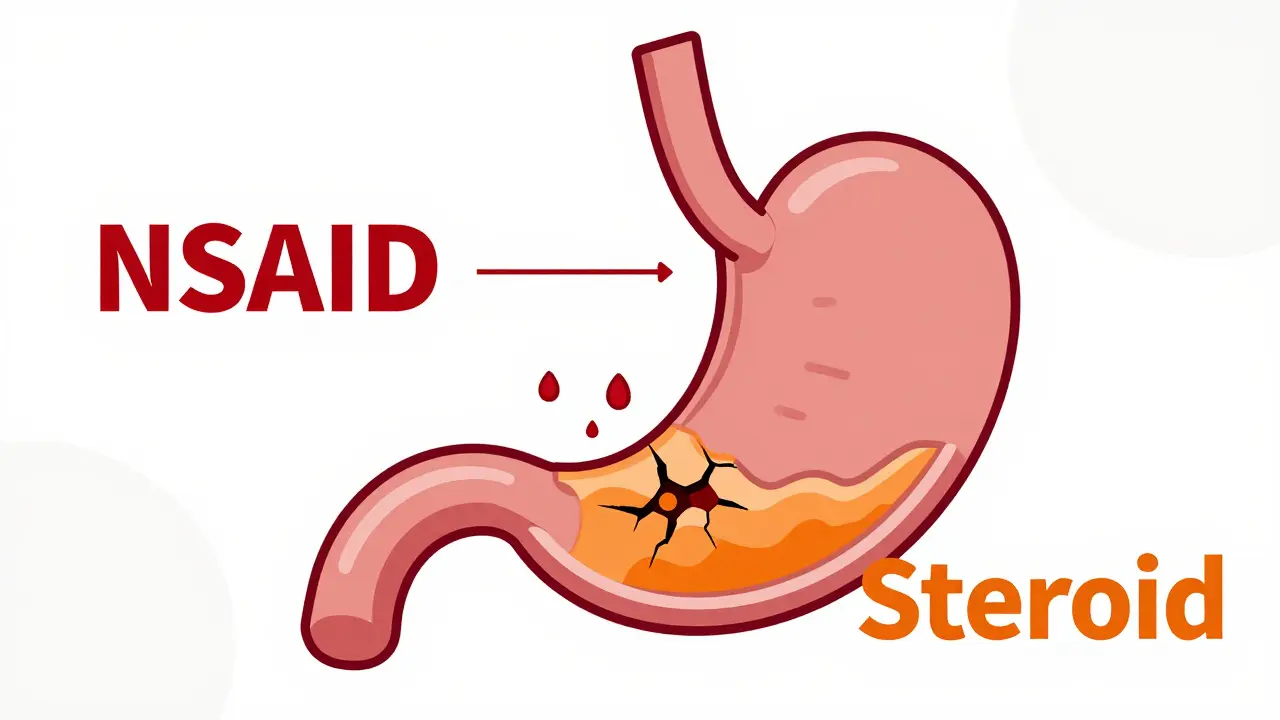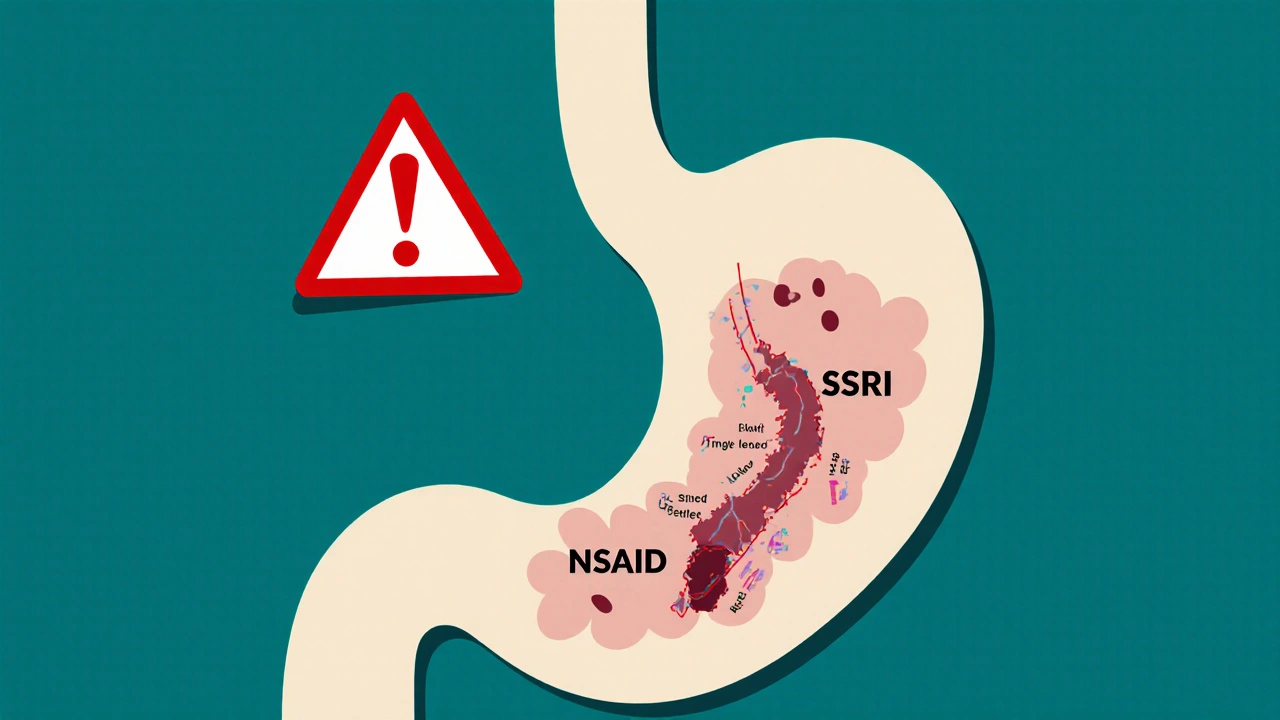GI Bleeding Risk: What Causes It and Which Medications Increase It
When you take a pain reliever or a blood thinner, you might not think about your stomach—until something goes wrong. GI bleeding risk, the chance of dangerous bleeding in the gastrointestinal tract from medications, injury, or disease. Also known as gastrointestinal hemorrhage, it’s not rare, and it’s often tied to everyday drugs you might be taking without realizing the danger. This isn’t just about old people or heavy drinkers. Even healthy adults on regular painkillers can end up in the ER with internal bleeding that started as a quiet, ignored ache.
The biggest culprits? NSAIDs, a class of painkillers including ibuprofen, naproxen, and meloxicam that reduce inflammation but also wear down the stomach lining. Then there’s anticoagulants, blood thinners like warfarin or newer options that prevent clots but make bleeding harder to stop. These two together? A dangerous combo. Studies show people taking both have up to five times higher risk of serious GI bleeding than those on neither. And it’s not just pills—some supplements like fish oil or high-dose vitamin E can add to the risk too. Even aspirin, often seen as harmless, can cause ulcers over time, especially if taken daily.
Who’s most at risk? People over 65, those with a history of ulcers, anyone on steroids or SSRIs, and folks with H. pylori infection. But here’s the thing: you don’t need a diagnosis to be in danger. If you’ve ever felt a burning stomach after taking ibuprofen, or noticed dark stools or vomiting that looks like coffee grounds, that’s not normal. It’s your body screaming for attention. The good news? You can lower your risk. Talk to your doctor about alternatives like acetaminophen for pain, or ask if you really need that daily aspirin. Proton pump inhibitors like omeprazole can protect your stomach if you must stay on NSAIDs. And if you’re on blood thinners, don’t skip regular checkups—your doctor can monitor your levels and adjust if needed.
Below, you’ll find real-world comparisons of medications that affect your GI tract—from arthritis pills to blood pressure drugs—and what they really do to your stomach. No fluff. Just clear, practical info on what to watch for and how to stay safe.
Published on Dec 26
14 Comments
Taking steroids and NSAIDs together can raise your risk of serious GI bleeding by up to 9 times. Learn why this combo is dangerous, who’s most at risk, and how PPIs can prevent life-threatening complications.
Published on Oct 30
8 Comments
Combining SSRIs and NSAIDs can raise your risk of dangerous GI bleeding by 75%. Learn why this happens, who’s most at risk, and how to protect yourself with safer pain relief and proven prevention strategies.


